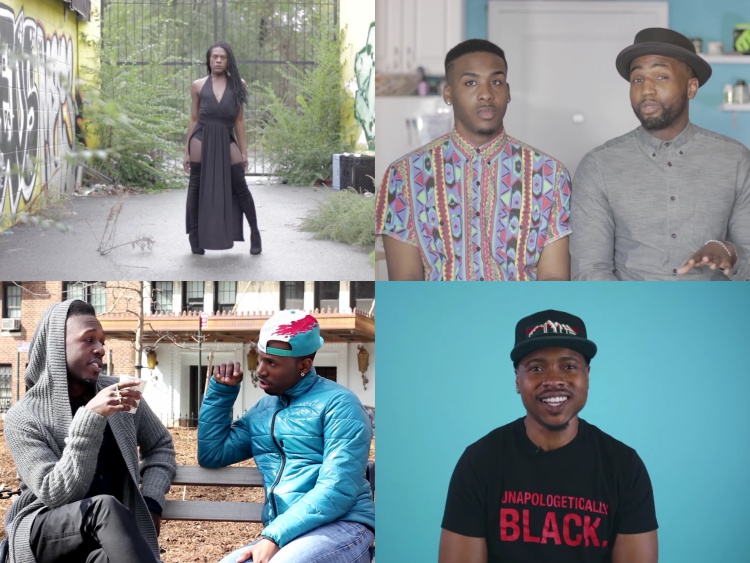When Moonlight literally snatched the Best Picture Oscar from La La Land in February, it felt like the beginning, not the culmination, of a long road towards QPOC visibility in the media. QPOC meaning queer people of color, an oft-forgotten and neglected sect of the queer community that, nevertheless persists in taking control of their own narratives.
Related | A Moonlight Revolution: The Black Queer Experience Comes of Age in America
The success of Moonlight proved there was an audience for stories about LGBTQ people of color, that those stories could be beautiful, critically-acclaimed works of art, and moreover, that there's a treasure trove of black, queer creative talent in need of discovery.
Related | The New Black Vanguard
Enter SlayTV.
Slay was founded by Sean Torrington, a former Goldman Sachs project manager, and his husband Terry; after Torrington lost his job in 2010 , he decided to follow his passion for filmmaking by creating some YouTube web series based on the lives of black and brown LGBTQ people. They then created an app to curate content from Youtube and the web onto one platform. And Slay has been growing ever since.
SlayTV officially launches on May 15 online, on iOS and Android devices, as well as on Roku, Apple AirPlay, Google Chromecast, Amazon Fire TV, and other services.
Torrington hopes to empower content creators to become "sustainable entrepreneurs" who generate their own revenue. "Slay is not only digital TV, it is a production company and an ad agency," he tells Out. "We will build campaigns around content on our network to get it branded."
That content includes a wide variety of programs in various formats, for and by queer people of color, such as: the docu-series Other Boys NYC, a 50-part series exploring narratives of queer and transgender men of color; No Shade, inspired by Torrington's coming-of-age in New York; and the romantic sitcom Love @ First Night, based loosely on Sean and Terry's relationship.
With the mainstream gay media still, rightfully, accused of being #SoWhite and television and film still desperately playing catch-up, outlets like SlayTV are providing sorely needed representation to queer people of color at a time when we probably need it most.
"Our mission is to create a space in the industry for black queer and trans media," Torrington says. "Normalizing our experiences through art sends a clear message to those who haven't been exposed to our dope, diverse community."















READER COMMENTS (